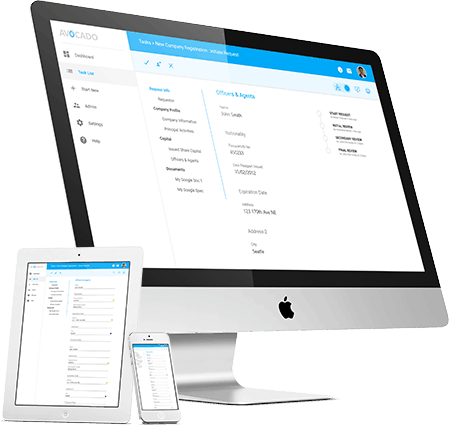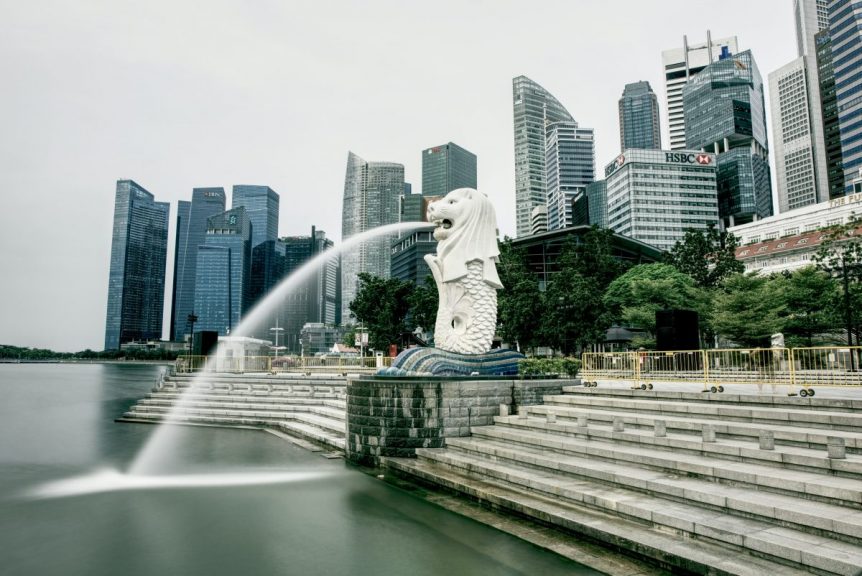Singapore has one of the most pro-business governments in the world. Aiming to reach the top level of transparency and efficiency, it implements various regulations to improve operating standards in the business. Recently implemented laws and updated regulations will raise the level of services provided and safeguard consumers from possible infringements. Well-designed and efficient legal system is among the many reasons entrepreneurs are interested in incorporating their company in Singapore.
According to the latest ACRA statistics, 5,455 local and foreign companies were incorporated in Singapore in April 2022. Statistics show that the highest number of these were found in the professional services sector — 887. The country also observed a significant increase in the finance and insurance sector, with 818 incorporations compared to 720 in the previous month, and a decrease in the information and communications sector — 729 incorporations, compared to 858 in the previous month.
If you are considering starting a business in Singapore, read our guide to learn why so many entrepreneurs are finding Singapore the right place to launch their businesses. You can also check our clients’ stories to get to know Singapore better.
Singapore Tightens Regulation of Crypto Businesses
On April 5, 2022, Singapore passed a new Financial Services and Markets bill, its most recent effort to tighten regulation of the cryptocurrency business. Despite the terms of this law and other approved crypto-related laws, however, the Government retains a favorable attitude toward cryptocurrency controls.
The new law imposes a license requirement on crypto businesses based in Singapore but doing business exceptionally overseas, with the aim of tightening rules for cryptocurrency providers. Before this, crypto service providers with headquarters in Singapore were not mandated to comply with anti–money laundering and anti-terrorism regulations.
The bill imposes harsh penalties, with a higher maximum penalty of S$1 million, to be imposed on companies and financial institutions that fail to uphold high levels of security, particularly if they experience cyberattacks or their services are disrupted. The Monetary Authority of Singapore will have the power to prohibit individuals who are deemed to be unfit from conducting key roles, activities, and functions in the financial industry, including those providing payment services and conducting risk management.
The State Minister of Trade in Singapore, Alvin Tan, said, “We could be exposed to reputational risks brought by digital token service providers created in Singapore. The Bill seeks to mitigate such risks by licensing these players and imposing anti–money laundering and anti-terrorism requirements on them.”
Tightened Requirements for Receiving Tax Incentives for Singapore Family Offices
Over the past few years, the family offices sector has seen robust growth in Singapore, which has emerged as a promising world-class hub for family offices. To enhance this positive trend, which provides inputs to the Singapore economy, the Monetary Authority of Singapore (MAS) has sought to boost the asset management ecosystem by implementing new rules for family offices.
As of April 18, 2022, the new rules imposed by the MAS apply to family offices seeking to receive tax incentives in Singapore. These new rules will not apply to applications submitted to MAS before this date, as well as applications submitted via MASNET that were approved after April 18, 2022.
The updated rules under the Singapore Income Tax Act extend the requirements to receive a tax exemption on income of a locally incorporated company that is considered a resident in Singapore (under the article 130 of the Act). The following updates in the list of requirements for this exemption were released by MAS, requiring applicants to:
- Have a minimum fund size at the moment of application of S$10 million. Further, the fund must increase its assets under management to a minimum of S$20 million within two years. (There was previously no such official requirement.)
- Hire at least two investment professionals who have substantial experience in the industry (i.e. traders, research analysts, or portfolio managers) with a minimum monthly salary of S$3,500. If it is impossible to hire two immediately, the second professional can be hired within one year after the application submission. (No such official requirement was in place previously.).
- Invest at least 10% of the fund’s assets under management or S$10 million (whichever is lower) in local investments. If the fund is unable to invest in local investments by the time of application submission, it will have one year to do this. (There was previously no such requirement.)
- Incur a minimum total business expenditure of S$200,000 per year based on the value of the fund’s assets under management. This includes tax advisory fees, management fees, and remuneration.
Also, companies that apply for tax exemption on income arising from funds managed by fund managers in Singapore (under the article 13U of the Act) must take into account the following updates to the existing requirements:
- The fund must be managed or advised by at least three investment professionals, and at least one of them should be a non–family member. If it is impossible to find at least one non–family member professional, the fund will be given a one-year grace period to do this. Before, family offices were required only to have at least three investment professionals employed at the point of application.
- Invest at least 10% of the fund’s assets under management or S$10 million (whichever is lower) in local investments. If the fund is unable to invest in local investments by the time of application submission, it will have one year to do this. (There was no such official requirement previously.)
- Incur a minimum local business spending of S$500,000 per year based on the value of the fund’s assets under management.
The conditions mentioned above apply to family offices wholly owned or controlled by members of the same family (including spouses and ex-spouses, children, and adopted children and stepchildren) and which manages assets on behalf of the family.
These incentive programs are among numerous business support programs introduced by the Singapore Government. If you want to learn more about the benefits for your business that Singapore offers, contact our incentive consultants for assistance. Our “matchME™ with Incentives” tool will help you understand which tax credits, grants, incentives, and funding sources your company is eligible for.
Singapore Starts Licensing Cyber Security Service Providers
To safeguard the interests of customers and eliminate the information gap between consumers and providers, the new Cyber Security Agency (CSA) of Singapore announced new licensing requirements for cybersecurity service providers as of April 11, 2022. Starting from this date, companies providing cybersecurity services will have a 6-month grace period (until October 11, 2022) to obtain the relevant license. After that period, any person who provides cybersecurity services without a license is subject to a fine or even jail time for failure to comply with new rules.
The new requirements will apply to the following cybersecurity services:
- Monitoring services from a managed security operations center. This is a service for monitoring the level of cybersecurity of another person’s computer or computer system by acquiring, identifying, and scanning information stored in, processed by, or transmitted through the computer or computer system for the purpose of identifying cybersecurity threats to the computer or computer system.
- Penetration testing services. This is a service for assessing, testing, or evaluating the level of cybersecurity of a computer or computer system by looking for vulnerabilities in, and breaching, the computer or computer system’s cybersecurity defenses.
According to CSA, all cybersecurity service providers that provide either or both of the mentioned above cybersecurity services to the Singapore market must obtain a license through the GoBusiness portal. These include companies or individuals who are directly engaged in such services, third-party cybersecurity service providers that provide these services in support of other cybersecurity service providers, and resellers or overseas cybersecurity service providers who provide licensable cybersecurity services to the Singapore market.
The CSA license is valid for two years, and an application for renewal should be made no later than two months before the expiry of the license. Once licensed, cybersecurity providers should follow obligations relating to the keeping of records and professional conduct and ensure their existing practices meet relevant standards.
If you want to incorporate a company in Singapore or require assistance with a license application, or other compliance matters related to running a business in Singapore, we will be glad to help. Contact our team for more information.
About CorporateServices.com
Headquartered in Singapore, CorporateServices.com, empowers global entrepreneurs with information and tools necessary to discover Singapore as a destination for launching or relocating their startup venture and offers a complete range of company incorporation, immigration, accounting, tax filing, and compliance services in Singapore. The company combines a cutting-edge online platform with an experienced team of industry veterans to offer high-quality and affordable services to its customers. Contact Us if you need assistance with setting up a new Singapore company or if you would like to transfer the administration of your existing company to us.
Share this Post

